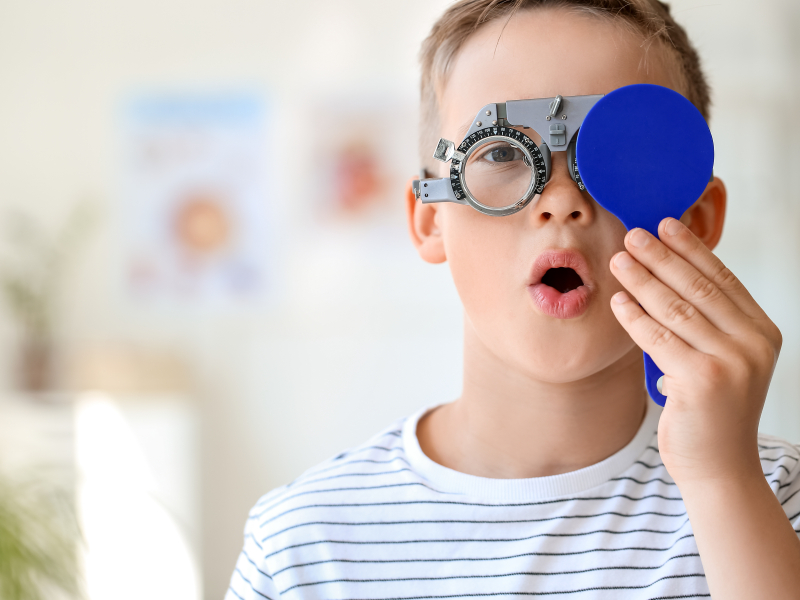Hong Kong is an energetic and cosmopolitan hub, yet it also has one of the highest rates of myopia (nearsightedness) in the world, particularly among children. Here, we have a look at causes of myopia, and how to delay it.
According to UK Registered Optometrist VIANN LAW of iSight Optometric Eye Care Centre, recent studies show that over 60 percent of children aged 12 to 13 are affected. She says that it’s important for parents and caregivers to know about the causes of myopia and explore effective strategies to delay onset and progression. We find out more from Viann below.

What are some factors behind these high rates of myopia?
School commitments
In Hong Kong, most children attend full-day schooling for six years of primary education followed by six years of secondary education. It’s a rigorous schedule that can leave little time for outdoor activities, especially when many students also participate in after-school tutoring or music lessons, further reducing opportunities for physical activity and exposure to natural light.
Increased screen exposure
The transition to online classes during COVID has resulted in children spending more time in front of screens, both for education and entertainment. Prolonged screen time has been linked to higher rates of myopia, leading to eye strain and discomfort that can worsen vision problems.
Urban living conditions
Hong Kong’s dense population and limited outdoor spaces can hinder access to natural light and areas for play, both of which are essential for healthy eye development.
Parental influence
Children with myopic parents are at a higher risk of developing myopia themselves. Studies show that the likelihood of becoming myopic increases significantly with parental history. In families where one or both parents are highly myopic, children often experience earlier onset and more rapid progression, highlighting the interaction between genetics and environmental factors.
What are some strategies to delay onset and slow progression of nearsightedness?
While the prevalence of this nearsightedness is concerning, there are effective strategies that parents can adopt to help delay its onset and slow its progression. Here are five:
#1 Promote outdoor activities
Encouraging children to spend time outdoors is one of the most effective ways to combat myopia. Parents should therefore strive to ensure children engage in at least two hours of outdoor play each day. Activities such as sports or simply playing in a park provide essential exposure to natural light.
#2 Limit screen time
Monitoring and managing screen time is crucial. Setting clear limits on screen use can help balance educational needs with physical activity. For instance, parents might implement rules about no screens during meals or before bedtime.
#3 Schedule regular eye check-ups
Routine eye examinations are vital for early detection and intervention. Have regular eye exams starting at a young age. Eye care professionals can provide tailored recommendations based on individual needs.
#4 Encourage healthy lifestyle changes
Promoting a balanced lifestyle that includes physical activity and reduced near-work can make a significant difference. Encourage children to take regular breaks during homework or screen time. Ideally, this would be every 20 minutes, allowing them to look away and focus on distant objects.
#5 Explore myopia control options
For children at higher risk, various interventions are available. Parents should work closely with eye care specialists to discuss myopia control options, which may include specialised contact lenses or low-dose atropine drops known to slow progression.
To make an appointment for yourself or your children at iSight (Room 1002-03 Loke Yew Building, 50-52 Queen’s Road Central), call 2521 6060 or visit isight.com.hk/book-online.
This article first appeared in the Summer 2025 issue of Expat Living magazine.
For more help with eye health issues, head to our health and wellness pages!




